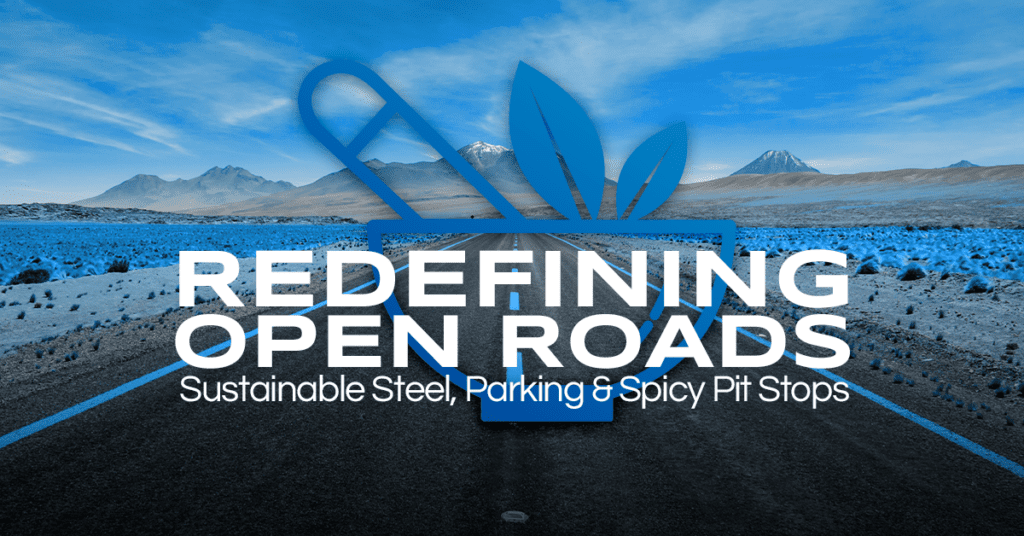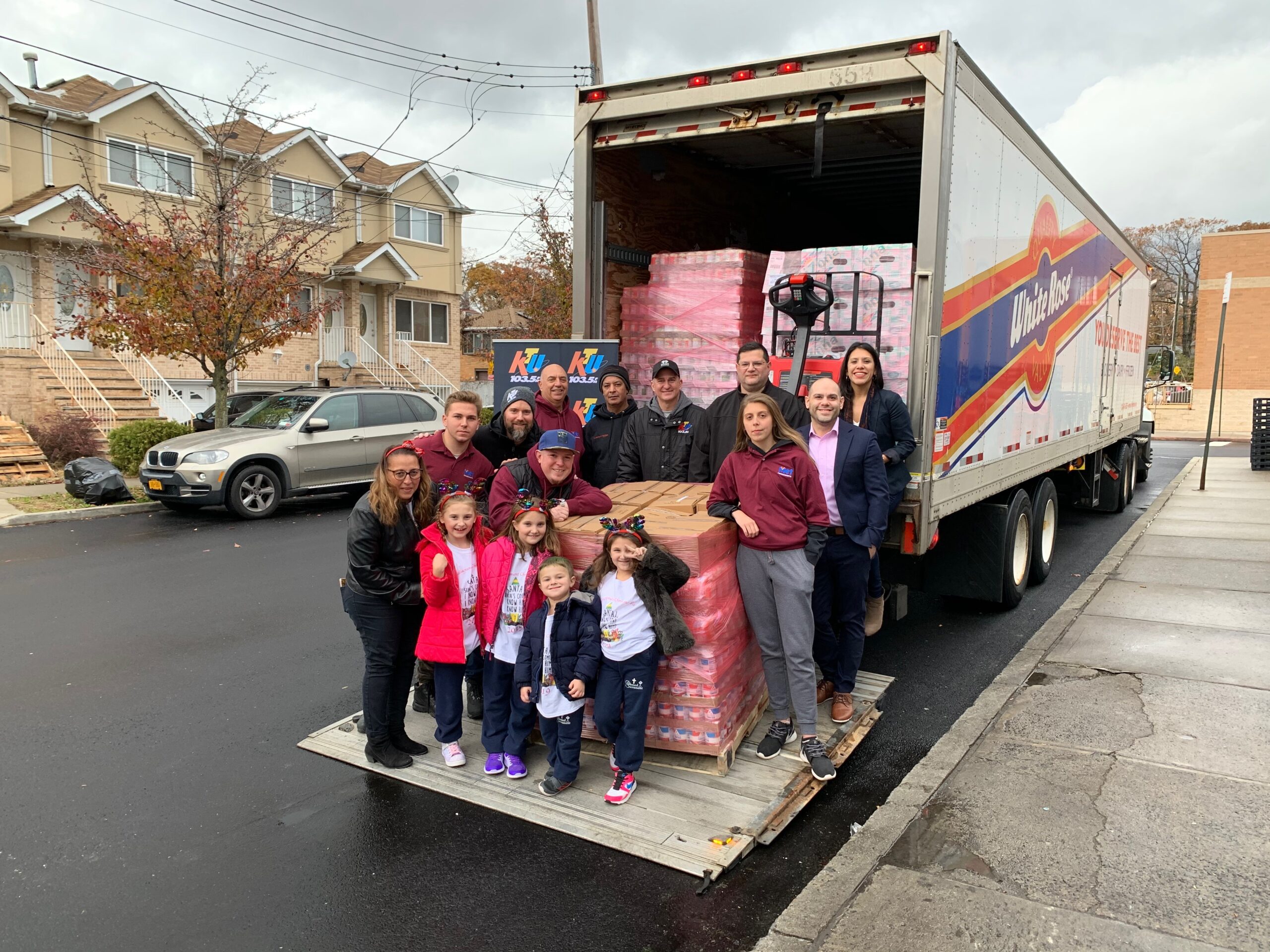
As the heartbeat of America’s commerce, the trucking industry propels our daily lives forward, seamlessly weaving stories of innovation, resilience, and diversity. First, we journey to West Memphis, Arkansas, where an expansion of truck parking facilities provides much-needed relief to a long-standing issue in the trucking world. Then, we shift gears to discuss the remarkable stride towards green transport made by PGT Trucking, with their inaugural delivery of low-GHG steel via Nikola’s electric truck. Lastly, we delve into the flavorful transformation of truck stops, as Indian restaurants, a cultural and gastronomical delight, begin to blossom along US trucking routes. Each of these narratives speaks to the evolving trucking landscape and the exciting opportunities it presents for commercial drivers, industrial staff, and logistics personnel alike.
More Parking for Trucking: A New Lot Opens in West Memphis
The nation’s most-traveled interstate, I-40, now boasts a brand new 84-space commercial truck parking lot in the bustling Memphis metropolitan area. The Arkansas Department of Transportation (ARDOT) celebrated this welcome addition with a ribbon-cutting ceremony on May 30, in West Memphis, Arkansas. Given that over 20,000 commercial trucks navigate this area daily, the facility stands as a critical piece of infrastructure for the local trucking industry.
Self-Funded Infrastructure: A Boost from the Arkansas Trucking Industry
In a unique show of self-determination, the Arkansas trucking industry had lobbied for a 15% increase in their registration fees in 2013. The rise in fees partly funds the Arkansas Commercial Truck Safety and Education Program, which in turn has made projects like the West Memphis parking expansion possible. According to the Arkansas Trucking Association, this expansion is a crucial boon to the 87% of Arkansas communities that rely solely on trucks for the delivery of everyday essentials, from groceries to furniture.
Parking Woes: The Number One Concern for Truck Drivers
The American Transportation Research Institute reports that for the last three years, truck drivers have flagged parking shortage as their most significant issue. The US Department of Transportation affirms this sentiment, stating that 98% of truck drivers regularly grapple with finding safe parking spots. The dearth of parking facilities costs the average driver about $5,500 annually due to lost drive time, emphasizing the critical need for more parking infrastructure.
Parking Shortage: A Bottleneck for the Industry’s Growth
The opening of the new parking lot could not have come at a better time, as the closure of the I-40 bridge in Memphis has severely congested the area. A clear lack of safe and available truck parking not only impacts the driver’s safety and well-being, but also constrains the industry’s efficiency and its capacity to attract new recruits. The addition of this new parking lot in West Memphis, is a significant step toward addressing these concerns and boosting the growth of the trucking industry.
Green Milestone: PGT Trucking Ships Low-GHG Steel Using Nikola’s Electric Truck
PGT Trucking, a leading flatbed transportation firm, marked a significant milestone in sustainable transport with the inaugural delivery of low-greenhouse-gas (GHG) steel, using Nikola’s Class 8 battery-electric vehicle. The steel, produced by Charlotte-based Nucor, was transported from Nucor’s new facility in Brandenburg, Kentucky. The move aligns with PGT Trucking’s commitment to achieving a 35% reduction in emissions from its company-owned equipment by 2025, making it a forerunner in leveraging green technologies to lower overall carbon emissions.
Low-Carbon Steel Production: Nucor’s Commitment to Sustainability
Nucor, a manufacturer known for its sustainable model of low-carbon-footprint steel production, acknowledges the need for continued efforts to reduce greenhouse gas intensity. Partnering with companies like PGT and Nikola represents one of Nucor’s innovative strategies for carbon reduction. To facilitate this, Nucor has installed charging stations at multiple mills, including the Brandenburg facility, fostering the use of battery-electric flatbed trucks. These trucks, it is estimated, will reduce carbon emissions by 40% and lead to a 20% savings in energy cost per trip.
Electric Trucks: A Step Towards Decarbonization
The trucking industry is on a journey towards decarbonization, as shown by recent studies indicating that replacing 50% of heavy-duty regional-haul tractors with battery-electric trucks could save an estimated 29.4 million metric tons of CO2 equivalent annually. The industry is exploring multiple pathways to reach this goal, from improving diesel truck efficiency to considering zero-emission alternatives. Companies like PGT, Nucor, and Nikola are playing crucial roles in this shift, demonstrating the teamwork needed to transition the industry towards zero-emission trucking.
Bumpy Roads and New Beginnings: Nikola’s Journey Towards Sustainable Trucking
Phoenix-based Nikola, known for its electric and hydrogen fuel vehicles, has faced financial challenges recently, struggling to meet its financial goals and grow its business. Nevertheless, the partnership with PGT Trucking and Nucor signals a positive step forward for the company. PGT Trucking’s leadership firmly believes in the future of zero-emission trucks, indicating that such collaborations and commitments to sustainable practices will be vital in moving the industry forward.
The Curry Mile: Indian Restaurants Thrive Along US Trucking Routes”
Across the US, truck stops are undergoing a flavorful transformation as an increasing number of Indian restaurants spring up along prominent trucking routes. These establishments offer truck drivers, who traditionally have had limited dining options, an exciting alternative to fast food. One such restaurant, located in western Oklahoma on the historic Route 66, is Truck Stop 40 at Exit 26. Owned by Amar Singh, this restaurant has been a hub for homemade Indian food since the early 2000s, spreading its reputation purely through word of mouth.
A Slice of Punjab in the Heart of the US
Amar Singh’s eatery is often referred to as a little Punjab, a little India, providing a cultural experience as well as a gastronomical one. Hailing from a lineage of Punjabi truckers, Singh and his family took over the restaurant from its previous owners. These Indian truck stops, known as “Dhabas”, have been gradually appearing along America’s busiest highways, catering to the considerable Punjabi trucker population that forms close to 20% of the US trucking industry.
Filling the Void: Fresh and Healthy Meals for Truckers
The surge in Indian restaurants along trucking routes is also addressing a crucial need in the trucking community – accessible, fresh, and healthy meals on the road. According to Raman Dhillon of the North American Punjabi Trucking Association, the lack of such food has been a long-standing and significant issue, especially for those who sometimes abstain from meat. Singh and his family, along with other Indian restaurant owners, aim to meet this need while offering truckers a place to rest and recharge before they embark on the next leg of their journey.
A Spicy Surprise at the Truck Stop
To many truck drivers and non-truck drivers alike, the presence of an Indian food restaurant at a truck stop in Oklahoma was an unexpected delight. By offering fresh and tasty meals daily, these Indian restaurants have added a layer of diversity to the trucking routes. As Singh put it, this is truly a realization of the American dream.
Before You Hit The Road…
From the practical resolve of truckers in Arkansas addressing parking woes to the environment-friendly strides of PGT Trucking and the spicy surprises offered by Indian truck stops, the dynamism and diversity within the trucking industry remain unparalleled. The stories we’ve shared today highlight the industry’s continues commitment to creating a safer, greener, and more enjoyable experience for our nation’s truckers. While the industry continues to evolve, this conversation is an ongoing one, and we want to hear from you. What are your thoughts on these developments? Share your insights in the comments section and be sure to return next week for another edition of the ‘Optimum Logistic Weekly News Recap,’ where we continue to explore the threads that weave the ever-evolving tapestry of the trucking industry.
If you made it to this part of the article, we’d just like to take a moment to thank you for taking the time to read this weekly recap. Be safe out there and as always, If you’re in search of CDL A, B, or warehouse positions, check out our open positions. And if you need staffing solutions for commercial driving or industrial positions, be sure to explore our offerings.



